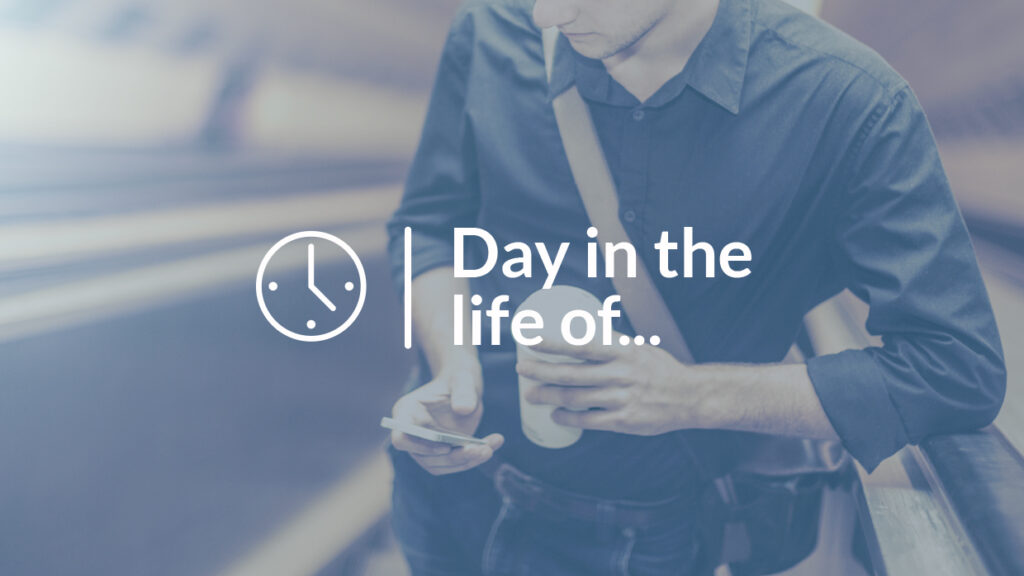We're always curious to hear how our members and contributors tackle the challenges that the ever-changing world of HR throws at them. We've got a wealth of experience and knowledge across the site, and what better way to showcase the diversity of our community than to get them to walk us through an average day?
Want to tell us about your way of working? Email us at editor@hrzone.com, or let us know in the comments below.
Meg Peppin is the Director at MP Partnership, specialising in organisational development. Her article on the crossover between OD and L&D was very popular with our readers, so we thought it was about time we talked to her about how she organises her workload.
So, Meg, tell us about your day…
Like many of us, I don’t have one typical day.
My work however does have a pattern; I have days where I’m in client meetings consulting, days where I am coaching, days where I am designing and planning, days where I am networking/attending CPD events, and days where I am facilitating events, workshops and meetings.
I have picked an office day to write about; a non-billing day which is quite typical of how I spend my time when not client facing, and rich in variety.
07:00 – Up putting the kettle on. Browse twitter for news and chats. Write up notes from yesterday’s meeting, update my timesheet/work record. I’m currently judging the HR Distinction awards, so I look at two submissions.
08:30 – Work through emails; I endeavour to end or start the day with a review so that the inbox doesn’t get bigger than 200; a legacy from an employer who had a policy that they would archive every email that tipped over 200. I don’t often succeed but it’s a discipline that remains.
09:00 – Coaching call with coachee in Europe. I’m so appreciative of what technology enables.
I endeavour to end or start the day with a review so that the inbox doesn’t get bigger than 200
10:30 – Co-coaching call. I am a Thinking Environment® coach (currently completing my final assignment prior to qualification – not fitting that in very well at the moment). As part of my Time to Think licence I have two hours thinking practice each week with other practitioners. As always, I get space to process what’s beneath the surface, and some insight into something I need to let go of.
11:30 – Writing up notes from coaching and co-coaching.
12:00 – Client calls me. Making change is creating reverberations in the system, so we have a good forensic conversation about what’s going on, and plan my next visit where we are going to design the next phase of our work.
13:30 – Lunch. Tuna sandwich as is often the case. A short dip into twitter. Rarely a day goes by where I don’t jump into my timeline. Some people crowdsource responses to a question, discuss tuna sandwiches, or there are news items creating ripples. All of it provides stimulation and connection when working on my own.
14:00 – Emails and admin; ranging from arranging purchase orders, meeting, preparing an invoice, exchange emails with a client planning Decembers’ board meeting; it’s a visioning session and we are bouncing ideas around.
I visit my currently-neglected blog; I'm going through a phase where I have half a dozen half written blogs. Ironically, my current one is “in praise of completeness”, which is incomplete.
Browse the internet for theatre options as a gift over a cup of tea. Confirm meetings, book train tickets for the following week, spend a bit too long looking at train connections – at this time of the day, I can overcomplicate things, I’m better with a clear task.
16:00 – Tea and more judging.
18:00 – Living with an extended family at the moment – there’s seven of us and I’m on supper duty. Huge salad and family favourite: spaghetti (secret recipe).
20:00 – Final sign off for the day; respond to a couple of emails, write up time sheet. Time for a read – currently reading Systemic Coaching and Constellations by John Whitmore, and The Neogeneralist by Richard Martin and Kenneth Mikkelsens. Neither book is a quick read, both have depth and are written in chunks to take away and digest – both are delicious!
Unexpectedly we end up with a family table discussion about world politics late into the night.
Now, tell us…
What would you say are your main passions within L&D?
For my own L&D it’s all about my own personal process; what filters exist, what bias, what do I need to let go of. I guess I would always be championing that – organisations are all about relationships. If you are finding another person difficult to work with; start with yourself – after all, you’re the only person you can change.
What part of your job do you enjoy the most?
Even when it’s tough; getting new work, work that gets sticky, not having enough, having too much – I enjoy it all. I do enjoy being with my clients, in their workplace, thinking with them about their organisation and making sense of the system around them. I like being in the thick of the everyday work.
If you are finding another person difficult to work with; start with yourself; after all, you’re the only person you can change.
One tip you’d pass on to your peers?
I always like to check in with myself to see whose agenda I’m working – is it mine or theirs? Am I creating the conditions for others to think for themselves, or am I keen to do the thinking for them? If I am veering towards working my agenda or doing others' thinking for them, it's time to shift!





